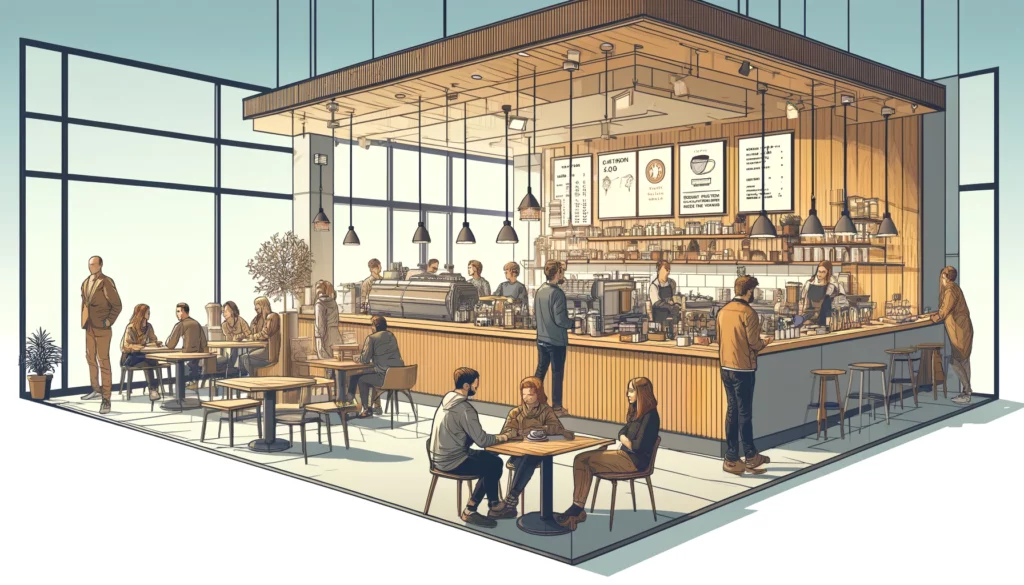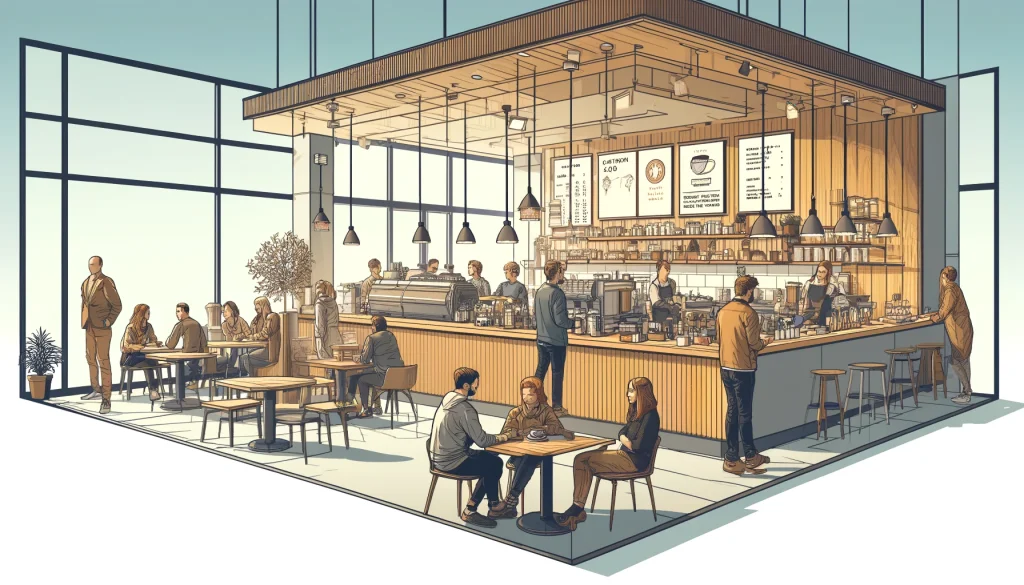Finns adore their coffee. On average, people in Finland consume 12 kilograms of coffee per year, making them the second highest per-capita coffee drinkers, only surpassed by Luxembourg. Finland is also frequently ranked as the most technologically advanced country in the world. Hence, it's logical that they welcome a combination of the two — technology and coffee.
Therefore, an artisanal coffee shop in Helsinki, Finland, received attention when they began selling an AI-created blend.
“We essentially provided AI with descriptions of all our coffee varieties and their flavors and instructed it to develop a new, enticing blend,” explained founder Svante Hampf while introducing “AI-conic” at the annual Helsinki Coffee Festival, as reported by The Associated Press.

AI-conic coffee
The AI program was given information about what constitutes a good coffee blend. It was then tasked with creating a new blend based on the types of coffee already available at the roastery. The AI chose a “somewhat unusual” combination, according to Svante: it combined four different types of coffee, instead of the typical two or three. It selected a unique mix of beans from Brazil, Colombia, Ethiopia and Guatemala.
Nonetheless, this unexpected choice resulted in a well-balanced blend of sweetness and fruitiness that was appreciated by the human experts at the event. In fact, following a blind taste test, human experts agreed that the blend was flawless and required no adjustments, according to The Associated Press.
Here we observe another instance of AI entering artisanal markets. Just a few weeks ago, brewers in Belgium produced the world’s first AI beer, and other companies are already utilizing AI to categorize wines and compose taste descriptions. Is this a marketing strategy? Probably. But does AI genuinely have a role to play in artisanal products? Also, very probably.
“This (trial) was the initial step in understanding how AI could assist us in the future,” Hampf remarked, adding that the project combined “the artisan skills of a roastery” and data provided by AI. “I believe AI has a lot to offer us in the long run. We are particularly impressed by the coffee flavor descriptions it created.”
AI can improve the quality of coffee

When coffee experts aim to create new blends, it's usually a process of trial and error. Experience and preference play a significant role, but there is also a lot of experimentation involved. And with over 200 major bean varieties worldwide, there's plenty of experimentation to be carried out. In 2023, researchers at the Fraunhofer Institute in Germany assessed existing algorithms for creating blends, demonstrating that they have great potential, not only for crafting new and exciting flavors but also in terms of cost efficiency. Cost is a factor that can be taken into account.
However, there are even more ways in which coffee and AI can be combined.
For example, AI can propose new methods to roast different coffee blends, as roasting can significantly impact the flavor, acidity, and body of the coffee. By analyzing data from previous roasts, AI can predict how slight variations in temperature and timing could enhance specific characteristics of the beans. This could result in more consistent quality and potentially unlock flavors that traditional roasting methods might overlook.
Researchers have also found ways to utilize artificial intelligence and spectroscopy to detect to determine the authenticity of coffee blends or whether they are not and even to predict the flavor and aroma of current blends. quality All in all, the use of AI in the coffee industry has the potential to make blending and roasting more accurate and flexible. Traditionally, these processes depend greatly on the roaster’s skill and intuition, which, although invaluable, can differ from batch to batch. AI, however, can continuously learn and adjust from each roasting session, using its expanding database of information to improve and perfect the process.
“AI-conic” coffee represents just the start. Implementing AI in coffee production may seem like a forward-looking luxury, but it is actually grounded in practicality. Soon, our morning coffee may be enhanced as a result.
It’s only logical that something like this would happen in Finland.









